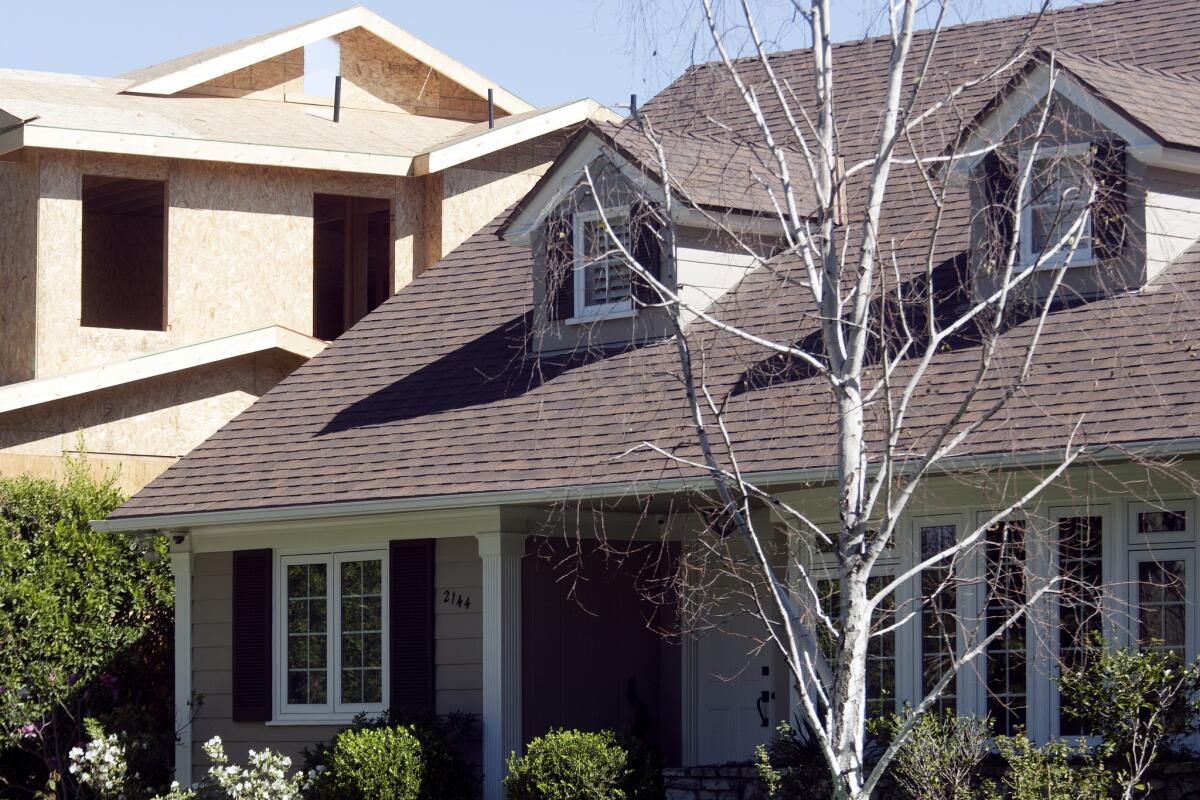Retiree preferences are poised to drive the housing market, study says

- Share via
Retirees and those near retirement will have an outsized effect on the U.S. housing market over the next decade, as baby boomers and elders are buying or altering homes to live in them longer or to accommodate family members, a new study said.
The study by Merrill Lynch found, for instance, that almost a third of baby boomers and their elders are choosing to buy larger homes in retirement instead of downsizing, and many retirees are altering their homes as they get older as an alternative to moving to institutionalized settings.
The Bank of America Corp. unit said its survey of 3,638 respondents across income groups found that respondents were primarily motivated in their housing choices by a desire to house visiting family members, a preference that is expected to have wide effect in the secondary and new-home markets.
“How and where older adults choose to live will have widespread implications for the different ways homes might be designed, what resources will be needed, and how communities nationwide should prepare for an aging population,” the survey said.
Baby boomers, those 50 to 68, and what the survey calls the Silent Generation, those 69 and older, are poised to account for more growth in the housing market than all other generations combined.
The survey said people older than 65 are expected to be the fastest-growth demographic from 2015 to 2025, accounting for 10.7 million new households. That would be five times more than the next-largest generation, those 34 to 44 years old, which is expected to create 2.5 million new households.
The study said the older generation has the demographic power and wealth to drive housing trends: Homeownership among those over 55 is about 80%, and 72% of those over 65 have no mortgage. People over 65 have an average home equity of $212,800.
In the survey, 64% of respondents said they are likely to move at least once during retirement, with 37% having already done so. About a third of respondents said their last move was to a larger home, while 19% said they moved to a similar-sized home.
More than half those who moved to larger homes said they did so to enable family members to visit or live with them.
An overwhelming number of respondents, 85%, said they wanted to receive extended healthcare, if needed, in their own homes. About 10% expressed a preference for assisted-living institutions, and only 4% said they would want to live with family members.
The survey cited data from the Center for Medicare and Medicaid Services showing that the number of nursing home residents has declined 5% to about 1.4 million from about 1.5 million during the 10 years that ended in 2012. The number receiving in-home care is up nearly 30% to 3.4 million during the same period.
More than half of the retirees in the survey already had renovated their homes by adding safety features or taking other steps such as building ramps to make homes easier to use.
Twitter: @deanstarkman
More to Read
Inside the business of entertainment
The Wide Shot brings you news, analysis and insights on everything from streaming wars to production — and what it all means for the future.
You may occasionally receive promotional content from the Los Angeles Times.











